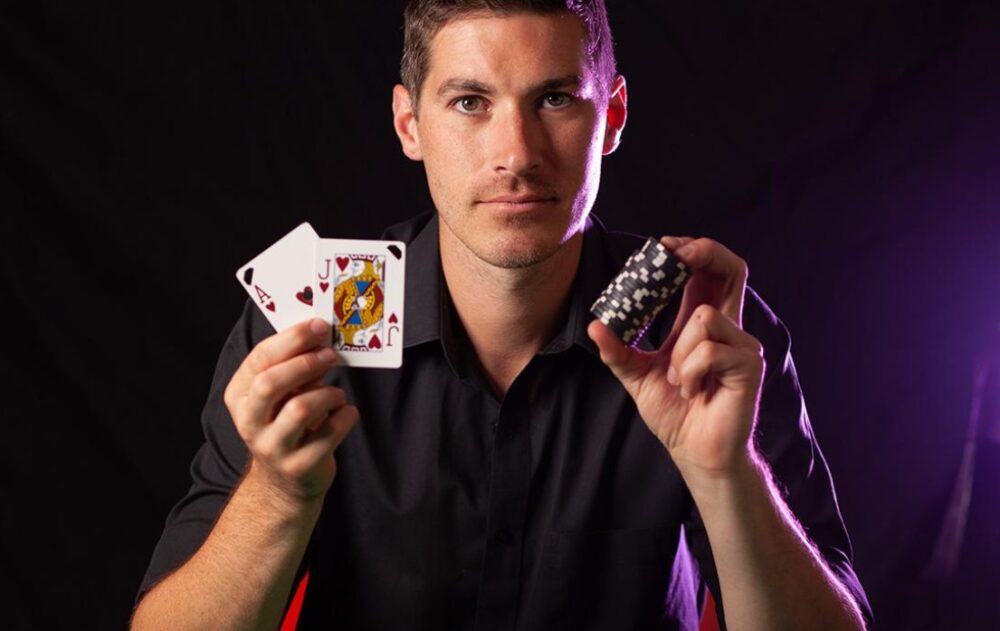Blackjack is a game of both luck and strategy. While luck plays a big role in determining whether you win or lose, there are certain strategies that can help you maximize your chances of winning. One of these strategies is knowing when to double down and when to back off. In this article, we will explore the ins and outs of this strategy and provide you with tips on how to apply it effectively in your Blackjack gameplay.

Understanding the Concept of Doubling Down
Before we dive into the specifics of when to double down and when to back off, it is essential to understand the concept of doubling down. In Blackjack, doubling down means doubling your initial bet and receiving only one more card in return. This move is advantageous if you have a strong hand, as it increases your potential winnings while limiting your potential losses.
The basic rule of doubling down is that it should only be done when the player has a strong hand that is likely to win. A strong hand is any hand with a total value of 9, 10, or 11. In these cases, there is a higher probability of drawing a 10-value card, which would give the player a total of 19, 20, or 21, respectively.
By understanding this concept, you can increase your chances of winning at Blackjack. And if you’re looking for a reliable online casino to play Blackjack, you can check out vave.bet for a fun and secure gaming experience.
When to Double Down?
Knowing when to double down is crucial to your success in Blackjack. Here are some scenarios in which doubling down is a good strategy:
- When the dealer has a weak hand: If the dealer has a weak hand (such as 2 through 6), doubling down can be a profitable move. This is because the dealer is more likely to bust, giving the player a higher chance of winning the hand.
- When you have a total value of 10: If your two initial cards add up to 10, you have a good chance of drawing a 10-value card when you double down. This would give you a total value of 20, which is a strong hand in Blackjack.
- When you have a total value of 11: If your two initial cards add up to 11, doubling down is an excellent strategy. This is because there is a high probability of drawing a 10-value card, which would give you a total value of 21.
- When you have a soft hand: A soft hand is a hand that contains an Ace. If you have a soft hand, doubling down can be a profitable move, especially if the dealer has a weak hand. This is because the Ace can be counted as either 1 or 11, giving the player more flexibility in their hand.

When to Back Off?
While doubling down can be a profitable move in certain situations, there are times when it is better to back off. Here are some scenarios in which backing off is a good strategy:
- When the dealer has a strong hand: If the dealer has a strong hand (such as 7 through Ace), it is best to back off and not risk losing more money. This is because the dealer is more likely to win the hand, and doubling down would only increase the player’s potential losses.
- When you have a weak hand: If your two initial cards add up to a total value of 8 or less, it is best to back off and not risk losing more money. Doubling down in this situation is a risky move and unlikely to lead to a winning hand.
- When the deck is stacked against you: If you have been keeping track of the cards and notice that the deck is stacked against you, it is best to back off and wait for a better opportunity to double down.
- When you are on a losing streak: If you have been losing consistently, it is best to back off and take a break from playing. Doubling down in this situation is unlikely to turn your luck around and may only result in further losses.
Tips for Effective Doubling Down
Now that you know when to double down and when to back off, here are some tips to help you apply this strategy effectively in your gameplay:
- Always follow the basic rule: Doubling down should only be done when you have a strong hand that is likely to win. If you deviate from this rule, you may end up losing more money.
- Know the rules of the game: Different casinos may have different rules regarding doubling down. Make sure you are familiar with the rules of the casino you are playing in before you start playing.
- Keep track of the cards: Keeping track of the cards can help you determine when it is a good time to double down. If you notice that there are a lot of high-value cards left in the deck, it may be a good time to double down.
- Manage your bankroll: Doubling down can be a risky move that can result in big losses. Make sure you have enough money in your bankroll to cover the potential losses before you double down.

Conclusion
Doubling down is a powerful strategy in Blackjack that can help you maximize your potential winnings. However, it should only be done when you have a strong hand that is likely to win. By following the basic rule and keeping track of the cards, you can determine when it is a good time to double down and when it is better to back off. Remember to manage your bankroll and be familiar with the rules of the game before you start playing.





